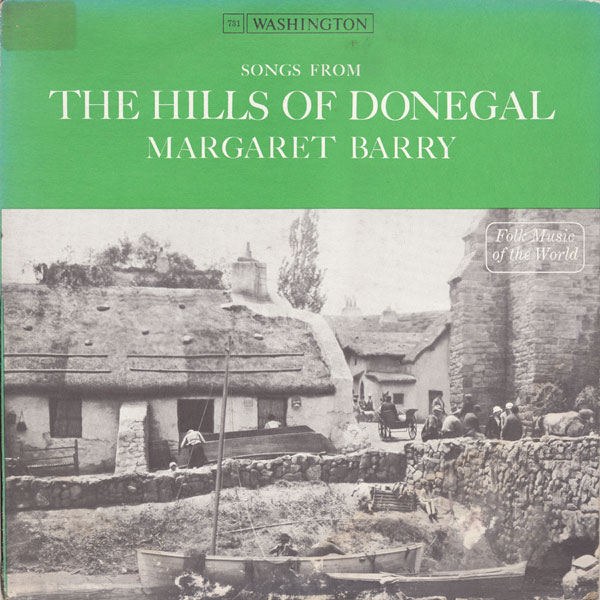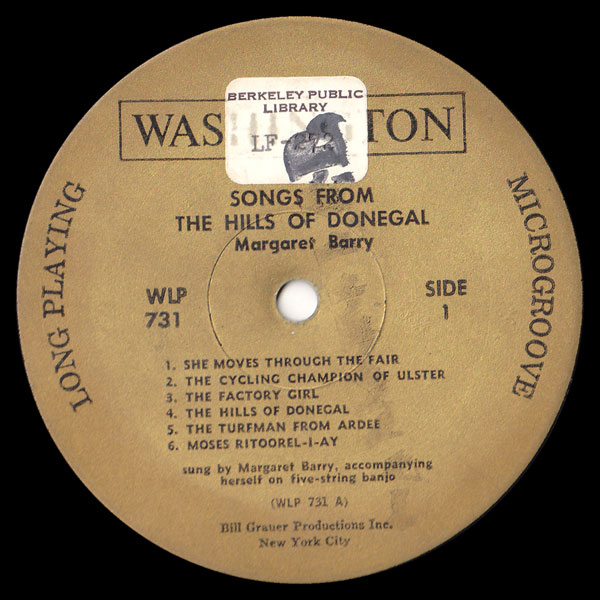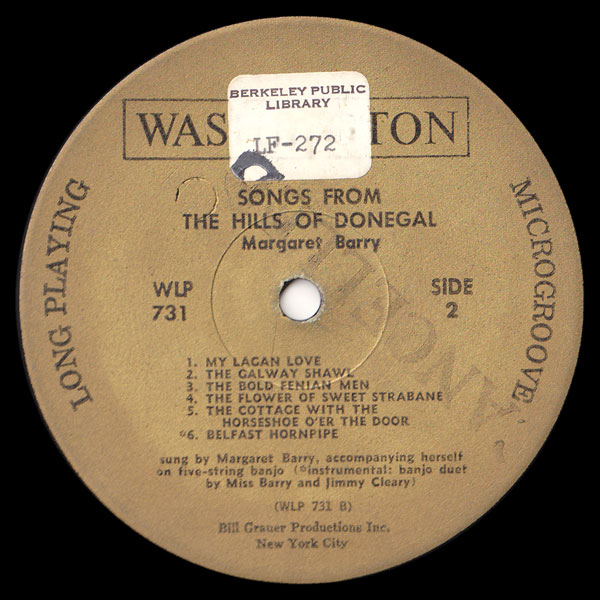
 |

 |
Sleeve Notes
Margaret Barry was born in Cork City, Ireland, in 1917. Her father was a fiddler of some renown and her maternal grandfather was the king of Irish pipers. Her style of singing is that of the street singer … and an unusually good one, as this recording surely attests. For the greater part of her life, Margaret has traveled the roads of Ireland in a horse and buggy, doing a little general trade, selling baskets and singing at country fairs.
I wanted her to sing at a folk music concert at the Royal Festival Hall in London and wrote to her care of the post office at Ballanahinch. The letter was returned, address unknown. I spent the next week telegraphing all the post offices in Ireland without any result. I had almost given her up when one day my phone rang and there was Margaret at the other end, phoning from London! "Sure I'll sing," she said, "the only thing that bothers me is the idea of standing up before all them people and showing them a mouthful of no teeth." It appears that she had been to the dentist that morning and had all her teeth extracted. However, she did sing and it was a wonderful occasion when she walked out onto the Festival Hall stage clutching her battered five string banjo and began to sing She Moves Through the Fair. Thirty-six hundred people rose to their feet and cheered. It is doubtful whether any of the internationally famous artists who have appeared on that stage have ever received such an ovation.
Afterwards, she disappeared into Ireland again to do the summer fairs. Subsequently, she turned up in London and called on me armed with a great sheaf of birth certificates and faded photographs of various members of her large and scattered family. She proceeded to tell me her life story: "... an' then there was my uncle Tom; he was a plume maker … or, … my uncle Dan now … he was the one that invented steam. You know, he had a bit of a kittle (kettle) and a toy train. I can't just" remember the way of it, but he invented steam," and ". … there's my grandfather now, Professor Thompson, that made the pipes with his own hands and you can see them lying in the museum at Cork and them not played for fifty years if it's a day ..." A story as long and as rambling as the roads of Ireland.
In London she has tried several jobs, kitchen hand, washer up, cook … but she never stays long. "I get to thinking about a tune and the next thing I know, the meat's burned to a cinder or the sink's overflowing and flooding the place. I just haven't got the heart for anything but singing." And that is true enough, and like most true artists she finds herself at cross purposes with the society she lives in.
EWAN MacCOLL
"The Irish are famed as a nation of singers; not choral singers like the Welsh, but soloists — folk memories are long, and there was a time when for Irishmen to meet together and to attract attention to themselves by singing their national songs in chorus, was to court imprisonment." In this manner, Patrick Galvin, collector, singer, and author, explains the singing heritage of Ireland, where ballad writing, broadsheet selling, and singing in the streets, market place, or country fairs are still living traditions.
The songs of a street singer are rarely "folksongs" in the academic sense, though their renditions are certainly in the oral tradition. They may be, as in the case of many of Margaret Barry's songs, composed songs in a popular tradition. Their authors may be known — indeed, some are still living — but this is of little consequence, for the continued singing of these songs is dependent only upon their ability to express the people's legitimate emotions and aspirations. Songs of love and homesickness, of working people and national struggle, of Ireland's little people and of her heroes — these are the songs of Margaret Barry, tinker lady and street singer.
KENNETH S. GOLDSTEIN